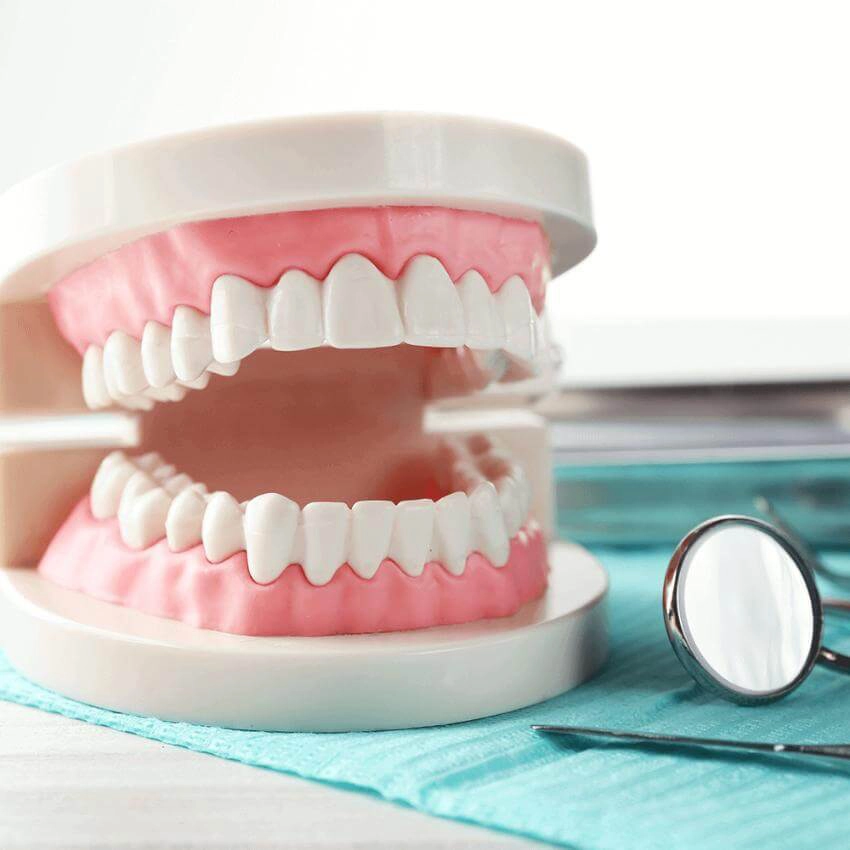Home/Wellness Zone/Sakra Blogs
29th Sep, 2021

We all know adults have 32 teeth. If you are an adult reading this, can you count your teeth now? Did you just count 33? Well, don’t panic. This is a condition known as Hyperdontia.
Hyperdontia is a mouth condition that causes too many teeth to grow in the mouth or in other words, a condition where a person has extra teeth that grow around the other teeth. These extra teeth are also known as “supernumerary” teeth. The extra teeth appear especially where the teeth are attached to the jaw. This is not only related to adult teeth but baby teeth too.
There are 20 teeth that grow when you’re a child. These are known as primary or deciduous teeth. As you adult, 32 adult teeth replace them and these adult teeth are called permanent teeth. With Hyperdontia, you can have extra primary or permanent teeth but having extra primary teeth are more common.
In terms of looks, these teeth look the same most of the time or sometimes pop up in different shapes and sizes. Also, Hyperdontia is twice as common among males, compared with females.
Types of Hyperdontia
There are two different ways to classify Hyperdontia - based on shape and location.
Categorization based on shapes:
Supplemental: The extra tooth is shaped similar to the tooth that it grows next to.
Tuberculate: Teeth have got more than one cusp are described as barrel-shaped teeth. At times the crown of the tooth may be invaginated.
Compound Odontoma: The tooth can be identified as compound odontoma as there are several small tooth-like growths near each other.
Complex Odontoma: Tooth-like tissue grows around an area in a disordered group.
Conical Shaped: The tooth looks sharp at the top and is wide at the base.
Locations of extra teeth include:
Paramolar: An extra tooth grows next to one of the molars, in the back of the mouth.
Distomolar: An extra tooth that grows in line with the other molars, rather than around them.
Mesiodens: An extra tooth grows around or behind the four flat teeth at the front of the mouth ( incisors). The most common type of location-based Hyperdontia.
What causes Hyperdontia?
There is no clear answer to what causes Hyperdontia. But it may develop due to genetic factors or other health concerns. Some are listed below:
Gardner’s Syndrome: A disorder that causes non-cancerous growths to develop in different parts of the body. A predisposition for colorectal cancer.
Cleidocranial Dysplasia: With this hereditary condition, bones in the collar area and skull do not form properly.
Cleft Lip and Palate: Congenital conditions that occur before the baby is born and affect how the mouth and lip are formed.
Fabry Disease: A deficiency of the enzyme alpha-galactosidase causes this disorder. It can affect many parts of the body - skin, teeth, heart, kidneys, and brain.
Nance-Horan Syndrome: A condition that results in cataracts and dental problems.
Trichorhinophalangeal Syndrome: A congenital disorder that results in the malformation of bones and joints. Also causes problems with the growth and development of skin, teeth, and hair.
Besides these, other genetic syndromes can also cause supernumerary teeth. But the presence of extra teeth can be an important clue for the doctors to facilitate early diagnosis of the other diseases.
Are there any complications related to Hyperdontia?
The extra teeth can cause mild to severe complications. Some examples are - overcrowding and decay. Additionally, if the tooth tissue is left behind, it can mutate into a cyst or tumor. Complications related to Hyperdontia include:
Gap between teeth
Overcrowding or crooked teeth
Delayed eruption of permanent teeth
Pain and inflammation
Infections, such as gingivitis
Impaction of permanent incisors
Abnormal root formation
Cystic lesions formation around the teeth
If you notice extra teeth that are not in line with your surrounding teeth and are causing discomfort, make sure to check with your dentist or consult the best dental surgeons in Bangalore .
How is Hyperdontia treated?
Most of the cases of Hyperdontia don’t need treatment. However, based on the condition some require removal of the extra teeth. A dentist would recommend removing based on the following:
Unable to chew properly
Pain or discomfort due to overcrowding
Unable to properly brush or floss, which could lead to decay or gum disease
Feeling of discomfort or self-conscious about the way the extra teeth looks
Underlying genetic condition
If the extra tooth begins to interfere with your dental hygiene, such as delaying the eruption of permanent teeth, it is best to remove it.
It is important to attend routine dental examinations as it may help a dentist spot Hyperdontia during a regular checkup or X-ray. Sakra World Hospital is the best dental clinic in Bangalore , having experienced dental surgeons who are experts in treating any kind of dental condition. For Hyperdontia treatment in Bangalore consult the best dental hospital near you.
If you have any questions, DM us on our social media handles. For other dental information, visit our blog section.
HOD & SENIOR CONSULTANT- PERIODONTIST & LASER PRACTITIONER
Book an AppointmentEnquire Now
